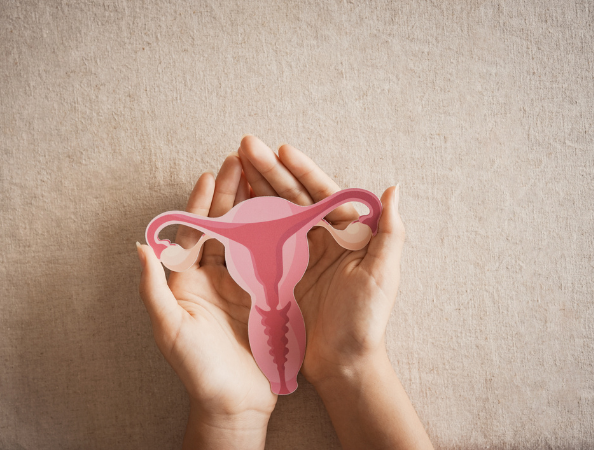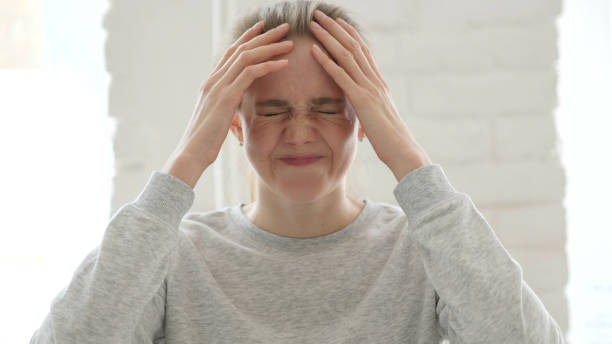Impact of menopause on women's mental health: irritability, depression, and anxiety

Menopause is a defining and life-changing stage for women, as the hormonal changes that lead to the end of menstruation also cause significant emotional disturbances. Insomnia, depression, anxiety, irritability, insecurity, fear, mistrust, memory changes, and feelings of inferiority are just some of the emotions that arise.
Clinical psychologist and sexologist Elena de Iracheta Ruíz, from the Women's Unit at Ruber International Hospital, explained on the Quirónsalud website that "on a physical level, many of the symptoms are bothersome, such as hot flashes, hormonal changes, weight gain, etc., and this makes women even more psychologically affected."
One of the emotional aspects that requires special attention during this transitional stage is depression, even with medical support if necessary.

Photo: iStock
"Depression occurs more frequently if it has already occurred in youth, and this increases its chance of recurrence by five times," the specialist adds.
How do I know I'm approaching menopause? These are some of the most common symptoms. According to the Mayo Clinic, these are some of the subtle symptoms you may experience during the menopausal transition.
- Irregular periods.
- Changes in mood.
- Hot flashes and difficulty sleeping.
- Vaginal and urinary discomfort.
- Decreased fertility.
- Changes in sexual function.
- Bone loss.
- Changes in estrogen levels.
- Changes in cholesterol levels.
For most women, whether or not they have symptoms, the onset of menopause is associated with aging . Their fertile years are over, and they must begin to accept the changes in their bodies, and this stage often coincides with the birth of their children or the end of their jobs.

There are many changes that women face during this stage of life. Photo: iStock
"Like all changes in life, they require a period of adaptation and understanding, first and foremost on the part of the woman, but also on the part of her partner and family. A woman's life doesn't have to be worse; quite the opposite: there are fewer family obligations, there's no longer any fear of an unwanted pregnancy, etc.; you should always try to look on the bright side of things. This way, changes are much more readily accepted," the psychologist adds on the Quirónsalud website.
Other recommendations that can help during menopause include HRT (hormone replacement therapy), local estrogen therapy (a preferred alternative for women), the use of lubricants during sexual intercourse (due to vaginal dryness), and, if possible, the advice of specialists (sexologist, psychologist).
eltiempo

%3Aformat(jpg)%3Aquality(99)%3Awatermark(f.elconfidencial.com%2Ffile%2Fbae%2Feea%2Ffde%2Fbaeeeafde1b3229287b0c008f7602058.png%2C0%2C275%2C1)%2Ff.elconfidencial.com%2Foriginal%2Ff51%2F8e2%2Fbe3%2Ff518e2be304774032b57c91afb23f694.jpg&w=3840&q=100)
%3Aformat(jpg)%3Aquality(99)%3Awatermark(f.elconfidencial.com%2Ffile%2Fbae%2Feea%2Ffde%2Fbaeeeafde1b3229287b0c008f7602058.png%2C0%2C275%2C1)%2Ff.elconfidencial.com%2Foriginal%2F2f1%2F687%2Ff35%2F2f1687f356fb7084997185351ff5d291.jpg&w=3840&q=100)
%3Aformat(jpg)%3Aquality(99)%3Awatermark(f.elconfidencial.com%2Ffile%2Fbae%2Feea%2Ffde%2Fbaeeeafde1b3229287b0c008f7602058.png%2C0%2C275%2C1)%2Ff.elconfidencial.com%2Foriginal%2Fbba%2Fe07%2F831%2Fbbae07831ff083c3801dc161dca8b725.jpg&w=3840&q=100)
